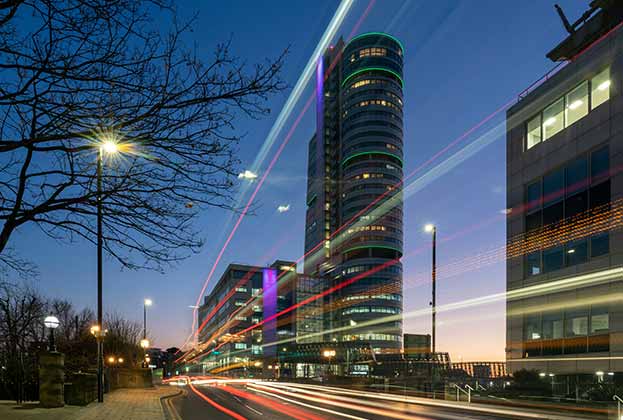What policy changes has the EU recently announced on energy security?
The European Commission has announced a plan to reduce Russian gas imports by two thirds by the end of 2022 and to make Europe independent from Russian fossil fuels well before 2030 as part of the REpowerEU initiative. Russia currently accounts for 40 per cent of EU gas imports, and restrictions have subsequently raised European gas prices per therm by circa 10 times against the previous year.
The OECD has subsequently warned that a 20 per cent decline in Europe’s energy imports would reduce GDP by one percentage point, most significantly impacting the domestic energy-producing sectors including air transport, chemicals and metals manufacturing.
How could the EU fill the gap?
During March 2022, the US and the EU announced a trade deal on liquified natural gas in order to reduce the EU’s reliance on Russian energy. However, this only accounts for 10 per cent of the shortfall.
In the short term, Europe may turn to gas exporters such as Qatar, Algeria or Nigeria, or potentially import higher levels of liquified natural gas (LNG) from the US. By next winter, it is expected that some European countries will be forced to 'fuel switch' (opening up coal-fired power plants in case of an emergency).
However, the European Green Deal remains central to Europe’s goal of becoming the first climate neutral continent as one third of the €1.8 trillion NextGenerationEU Recovery Plan will help finance the European Green Deal. In the longer term, REpowerEU aims to increase the level of rooftop solar panels and heat pumps, accelerating the switch to electrification and renewable hydrogen.
What are the implications for the office market?
Higher gas prices and rising levels of investment into energy efficiency improvements will heighten competition among tenants for energy efficient space in order to reduce energy bills. Of course, energy costs vary significantly depending on a building’s energy efficiency and the number of server rooms. For those occupiers with energy contracts that ended during March, Savills is observing energy price increases of circa 60 per cent across the UK. We expect this will widen the gap further between prime and secondary office rents, as businesses in less sustainable buildings spend increasing amounts on operating their premises.
This rental premium is likely to be further intensified as European governments tighten regulation around leasing commercial real estate. Offices with EPC ratings below C will be deemed unlettable by next year in the Netherlands, while the UK Government is considering implementing a minimum EPC rating B by 2030.
Given the backdrop of rising steel prices, we anticipate retrofitting will become more popular among landlords, saving an estimated 50-75 per cent of embodied carbon emissions compared with a new building. Our latest research indicates that there will be 10.8 million sq m of new office stock delivered across European office markets by the end of 2023, of which 64 per cent is currently speculative, which will provide occupiers with greener alternatives.
Disruption to energy markets and policy changes will continue to push forward the green agenda, encouraging occupiers to opt for prime assets to reduce their overall energy outlay.
Further information
Savills: European office demand rises above five-year average
Savills expects over 5.7m sq m of new European office space to be completed in 2022

-impact-the-office-sector(1).jpg)

.jpg)






